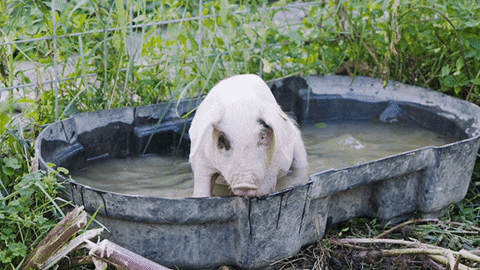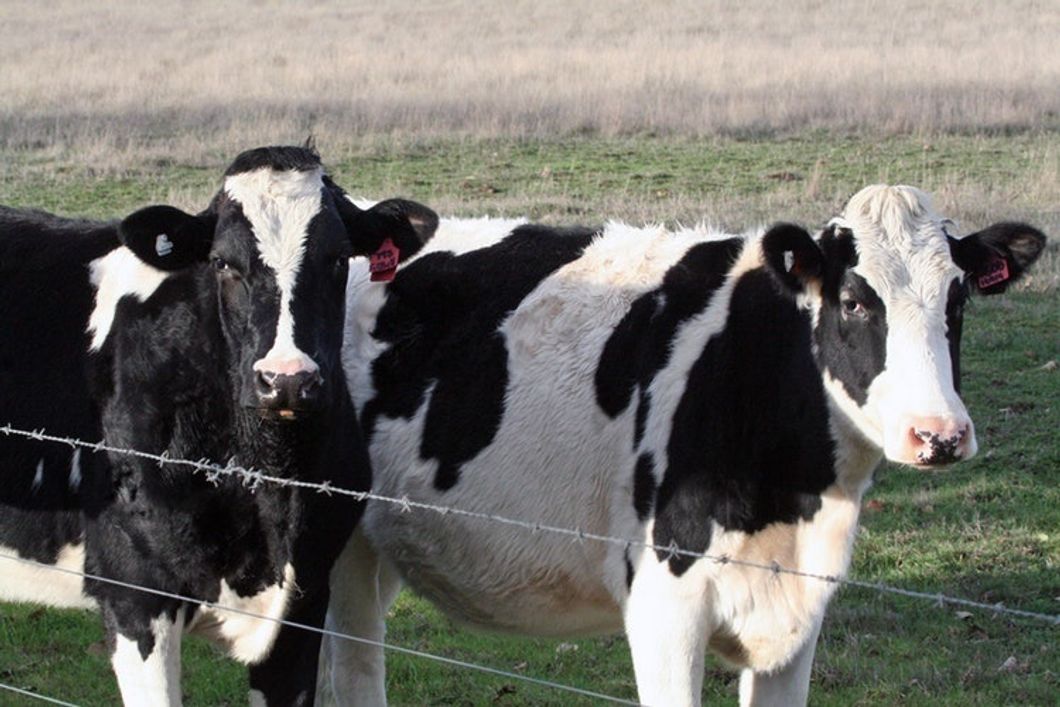From April 10th, 2017, to around March 2018, I was a pescatarian. A pescatarian is someone who does not eat meat from land animals but will occasionally eat fish, usually for health purposes.
The only times I ate actual meat that entire year was when it was served to me at family dinners (I didn't want to tell anyone and make a big deal of things) and the few moments of weakness when I ate chicken nuggets (sorry chickens). Honestly, I didn't eat fish or seafood all that much, either. I ate crabs with my family, I ate fish if they went through the effort to cook it for me, and I occasionally ate canned tuna.
As often as I could, though, my meals were 100% vegetarian.
Of course, I'm sure your next question is "Well, why did you stop?" My answer is I was living at home and not always doing my own grocery shopping. I didn't want to make my parents shop extra or buy things just for me. Every so often, they'd give me some money and I'd get some things for myself, but overall, it wasn't easy. I also wasn't eating healthily enough without the added protein of meat consumption.
That being said, I still do not eat red meat unless it is served to me at a family gathering. I do not buy beef or pork. I do not eat it when I'm out at restaurants. I eat as little as possible even at family gatherings. I do not eat red meat.
Someday soon, once I'm a better chef and can afford to experiment with more foods, I would like to cut out chicken as well, and possibly fish too. I've just started going to the gym and sadly, chicken is a very cheap source of lean protein, so I'll be eating that for the foreseeable future until I can find a high-protein veggie substitute that I can eat every day.
That being said, even though I will eat chicken and fish at this point in my life, I still prefer not to. I would say I have chicken or fish with one meal per day, if that. I usually don't eat any sort of meat on a typical day.
If you've been debating cutting out meat or at least reducing your meat consumption, here's a few reasons you should and a few things I've learned in my two-year quest to stop eating meat.
1. The cattle industry is one of the leading causes of deforestation of the Amazon rainforest.
It is believed that around 70% of Amazon deforestation in Brazil can be attributed to cattle ranching, as cattle ranching requires huge swaths of land for grazing. If you care about preserving the Amazon, reduce your beef consumption.
2. The livestock industry also requires huge amounts of water, which is more finite than you'd think.
In 2015, Texas alone required between 251 to 276 millions gallons of water per day for all livestock operations, including watering the animals, feedlots, and other on-farm daily needs. Freshwater is an increasingly finite resource, and many HUMANS (Flint, Michigan) don't even have access to safe freshwater. If you care about water preservation, it's a good idea to eat less meat.
3. Pigs and cows are extremely intelligent and emotionally complex creatures.
Pigs are one of the most intelligent animals. They love to play, they feel love and loneliness and sadness, and they're just as smart, if not smarter, than our domestic dogs. Cows are also considered to be emotionally complex individuals and have been shown to cry for their babies when they're taken away, as well as showing extreme feelings of joy. This is why I cannot and will not eat red meat anymore; I cannot justify killing such intelligent animals for my own consumption.
4. The meat industry is cruel.
There are countless publications and documentaries that expose some of the inhumane treatment of animals in the meat industry. Often times, former meat workers will share their experiences about what they've seen in factory meat farms. It's disgusting and unsettling. Give less economic support to an industry that sacrifices humanity for profit.
5. Red meat has been linked to a higher chance of developing various cancers.
Eating more than a certain amount of red meat per week has been shown to increase your risk of colorectal cancers, or cancers of the stomach/intestines/rectal tract. If you have a family history of any sort of intestinal cancer, you might want to consider cutting out red meat and reduce your risk.
6. There are so many meat alternatives available.
Brands such as Boca, Morningstar, Quorn, Tofurkey, Gardein, The Impossible Burger, JUST, and Beyond Meat have developed incredible animal-free products to replace a lot of the foods we eat as omnivores. Two of my favorite YouTubers, Jenna Marbles and Julien Solomita, are longtime vegans who found the Impossible Burger so close to a real burger that Julien, who only went vegan in the last few years, was almost unconvinced that it WASN'T meat. JUST has produced JUST Egg, a plant-based egg replacement product that cooks, looks, and tastes like scrambled eggs.
With so many meat alternatives, there isn't much need to eat meat every day or even every meal.
7. Eating a more plant-based diet has proven to be great for weight loss and better maintenance of overall health.
Many people speak on their personal experiences of going vegetarian or vegan and the wonders it has done for their health journeys. Some doctors will even prescribe vegetarianism or veganism as a means of weight loss or health maintenance for their patients, because it's generally more whole foods-based and healthier overall.
8. I found not eating meat to be a great exercise in self control and discipline.
From my intro paragraph, yes, I did have some moments of weakness where I HAD to have chicken nuggets. Overall, though, there was a great amount of satisfaction in ordering something meat-free at a restaurant despite my temptations and knowing no animals were killed to be on my plate.
9. They're so gosh darn cute, don't eat cute things!

Cows and pigs are my third and fourth favorite animals, respectively. Of course I can't eat them. I can't eat cute things.
I'm sure I haven't convinced you to give up meat entirely, but even going one day meatless is better than nothing. Save these cute farm babies, save your health, and save your environment.
















